Molested by a senior officer in the army, he was crippled by PTSD and tormented for years … until he challenged God
TRIGGER WARNING: This story mentions descriptions of suicide attempts that some may find distressing. Reader discretion is advised.
by Janice Tai // January 17, 2025, 4:13 pm
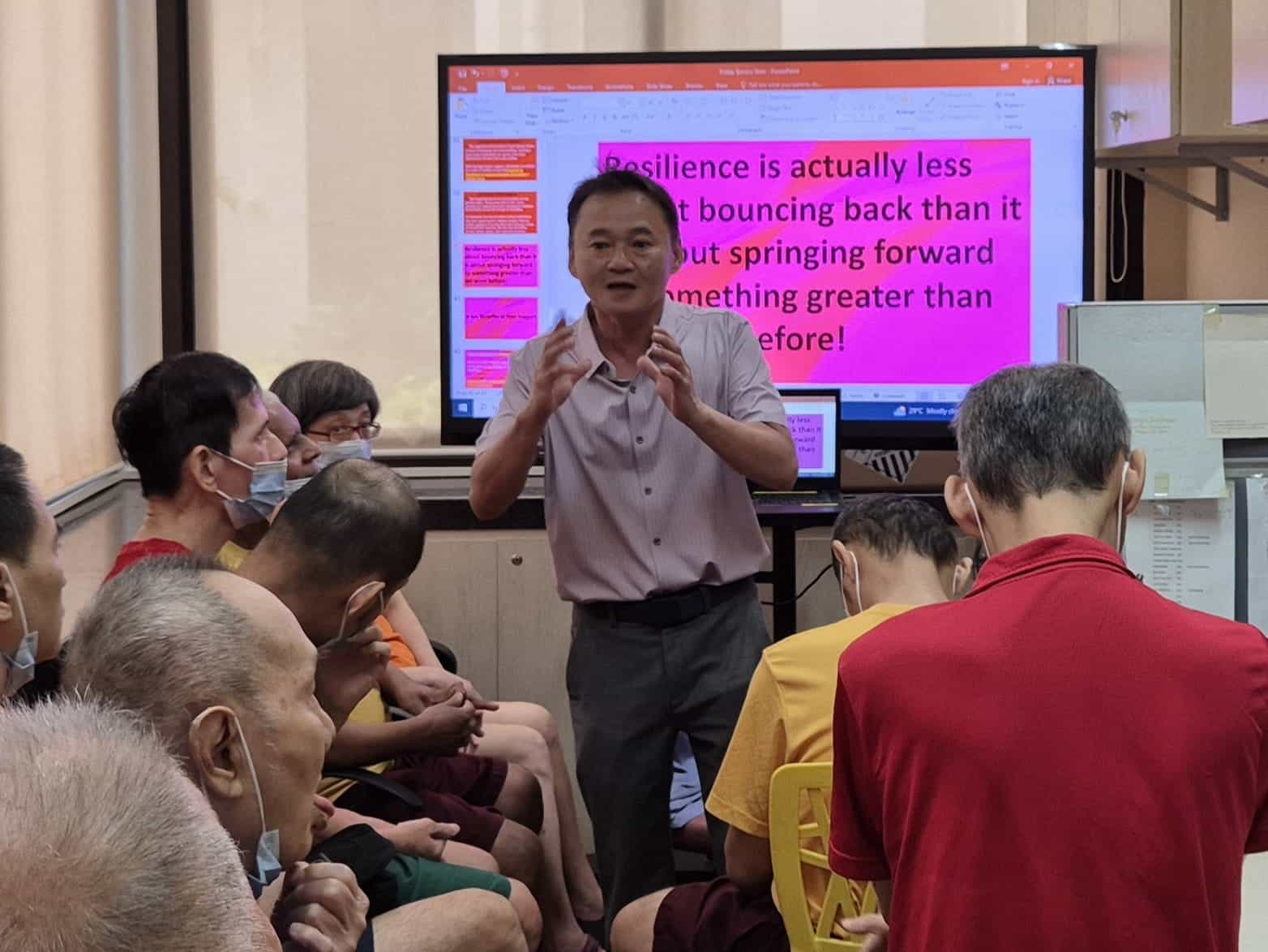
Peer support specialist Alan Ng conducting a group session for residents with mental illnesses at St Andrew's Nursing Home.
When Alan Ng enlisted in the army to do his National Service (NS) at the age of 18, he noticed a senior officer being particularly kind towards him.
He was given preferential treatment by that officer: He was offered nicer food during field training, allotted lighter guard duties and even when he was caught for smoking, he got off without punishment.
Little did he suspect that all these favours would come at a cost.
After about two months of receiving such special treatment, Alan was asked by the senior officer to go to his room one night.
“He asked me to go over to his room at midnight so that I can help wake him up at 5am the next day,” said Alan, now 55.
Alan dutifully obeyed, and went over to sleep in an empty bunk bed beside the officer’s. In the dark of the night, the officer crept over and molested him.
“I was terrified and ran away from him,” recalled Alan.
The nightly hide-and-seek
From that night onwards, Alan tried to avoid the officer at all cost. But it was to no avail. Whenever the night descended, the daring officer would make his way to Alan and sexually harass him.
“It did not matter if I tried to hide behind cupboards or hide in a room on a different floor. He would always find me,” Alan told Salt&Light.
Each time he heard the sound of the officer’s footsteps approaching his room or whenever he was touched, Alan’s body froze and his heart raced.
Yet the young man dared not oppose the senior officer or let anyone know about what was happening to him.
After being subjected to the molestation almost every night for two whole months, Alan suffered a mental breakdown.
“I was sad, angry, fearful and in pain as I felt really useless that I had allowed this to happen to me,” said Alan.
Like all other young people, he had aspirations of having a family of his own and a flat to call home.
Eventually, he shared his nightly traumatic experiences with his mother and sister. They lost no time in seeking help from their Member of Parliament (MP).
The case was immediately investigated and Alan was promptly transferred to another army camp.
“My nightmare didn’t end. I had to attend court to defend myself and faced intense and brutal questioning from lawyers who tried to poke holes in my account of events,” said Alan.
Fortunately, the officer pleaded guilty during the second court session.
Despite what was done to him, Alan asked for leniency for the officer, testifying that he was a competent officer. The officer was subsequently discharged from the army with his rank and pension stripped from him.
Hopes for a normal life dashed
Following this episode, Alan tried to go back to life as usual. After completing his National Service, he worked in his family’s manufacturing business as a production operator, then a shift leader and a machine setter.
With a stable job, he was able to grow his savings and he had a girlfriend. Like all other young people, Alan had aspirations of having a family of his own and a flat to call home.
However, there were signs that memories of his past trauma were just bubbling beneath the surface, threatening to spill over anytime.
“I continued to have nightmares of the sound of the officer’s footsteps approaching me, and I could even smell the smell of my army room in those flashbacks,” Alan recounted to Salt&Light.
Whenever scenes of army life appeared on the television screen or conversations arose about NS in his family, Alan steeled himself and walked away.
“I couldn’t feel any physical pain when I cut myself but doing so did reduce the pain in my heart by a bit.”
At the age of 27, however, his life unravelled and abruptly came to a standstill.
“I just went out of my office and sat down at the staircase outside. I was tired of life and told myself I was not going to move forward with my life anymore,” he shared.
He developed two patterns of strange behaviour.
Firstly, he became like “Santa Claus”, giving away all his worldly possessions. When his friends came to borrow money, he freely gave them all his savings. He also gave away his car to a neighbour.
Secondly, he withdrew from life. He switched off his pager and hid in his room at home like a recluse. He did not even dare venture out of his room to relieve himself or to shower, in case he crossed paths with a family member. He resorted to doing his motion in his room or waiting till the dead of night to go to the bathroom when everyone in the household was asleep.
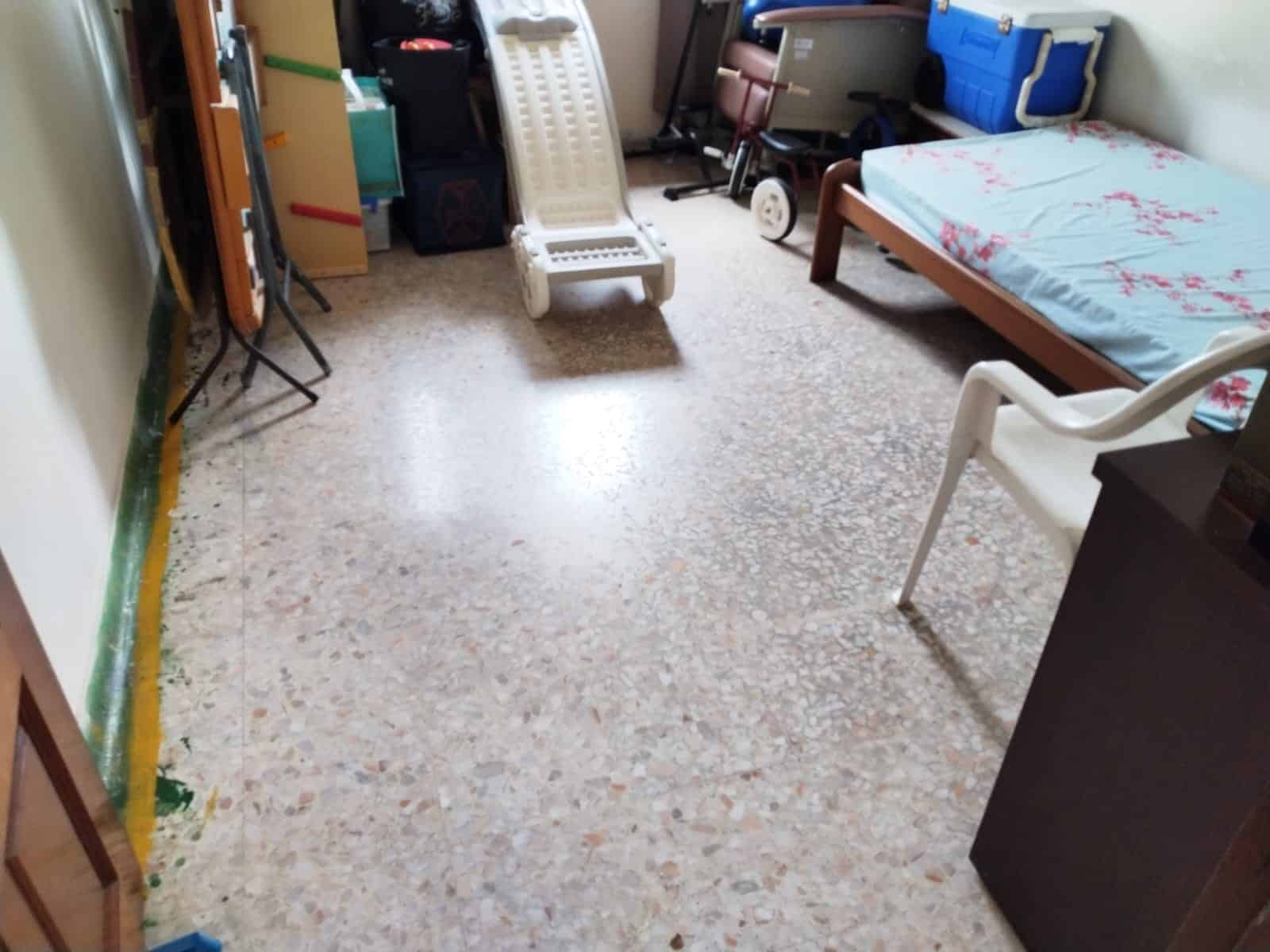
The room that Alan hid in.
His family was bewildered at his mood changes and strange behaviour, as there was no family history of mental illness.
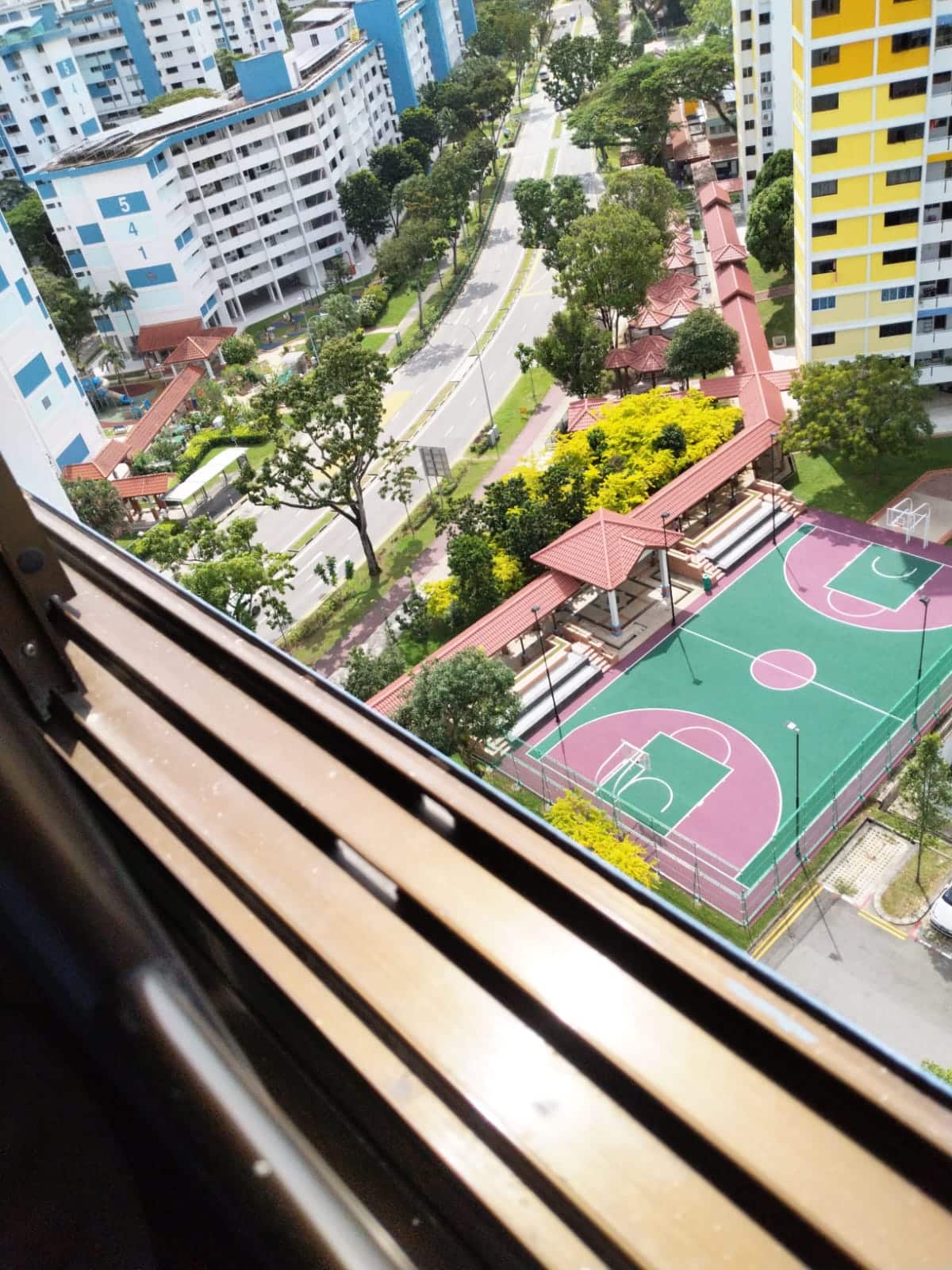
The view from Alan’s room. Every morning he would look down and notice people dressing smartly to go to work, and wished he could be like them.
When his hermitic stay in his room stretched to 18 months, his family members became worried and dragged him to seek professional help.
After consulting several psychiatrists, Alan was diagnosed with Post-Traumatic Stress Disorder (PTSD) and Bipolar Disorder.
PTSD is a mental health condition caused by an extremely stressful or terrifying event while bipolar disorder is a mental health condition that causes extreme mood swings, including emotional highs called mania and lows, also known as depression.
Despite taking some 13 tablets a day of medication, Alan’s condition did not improve.
Over the years, he tried to kill himself several times by slitting his wrists or overdosing on medication. His emotional pain was so great he felt no physical pain when he cut himself.
Even electroconvulsive therapy failed
As a last resort, doctors at Tan Tock Seng Hospital sent him for electroconvulsive therapy (ECT). It is a procedure that passes mild electrical currents through the brain to cause a brief seizure. It is used to treat severe mental illnesses that do not respond well to medication.
“For a while, it helped because it wiped out my memories. But slowly, the memories still came back,” said Alan, who also kept on having to be hospitalised.
“I believed that there is no God because if there is, why was I suffering so much?”
Though his family sought out the best doctors for him, his condition worsened. His psychiatrists warned him to expect intermittent hospitalisations and to be on lifelong medication.
“I felt so miserable, lost and hopeless,” said Alan. He did not know who to turn to and he did not believe in any divine being.
God, however, was already working in his family.
In 2005, his sister Iris became a Christian after her son was miraculously healed from his eczema.
“I hand over the steering wheel of my life to You. If You say turn left, I will turn left. If You say turn right, I will follow.”
Every Friday after that, she visited Alan and shared with him about God and the Gospel.
“I told her to stop talking nonsense to me. I believed that there is no God because if there is, why was I suffering so much?” said Alan. Once, when she brought a pastor to visit him in hospital, he even threw an apple at the pastor.
Yet his sister persisted in inviting him to her church, Lighthouse Evangelism.
In 2006, he caved in and followed her to church, because he had no money then and his sister promised to treat him to McDonald’s for lunch after church.
“I hated the church service. Everyone was standing up and singing songs, and I shouted and called all of them crazy, because I didn’t understand why they could be happy and sing songs when I was having so much pain within me,” said Alan.
Though embarrassed by his behaviour, his sister continued bringing him to church the following week.
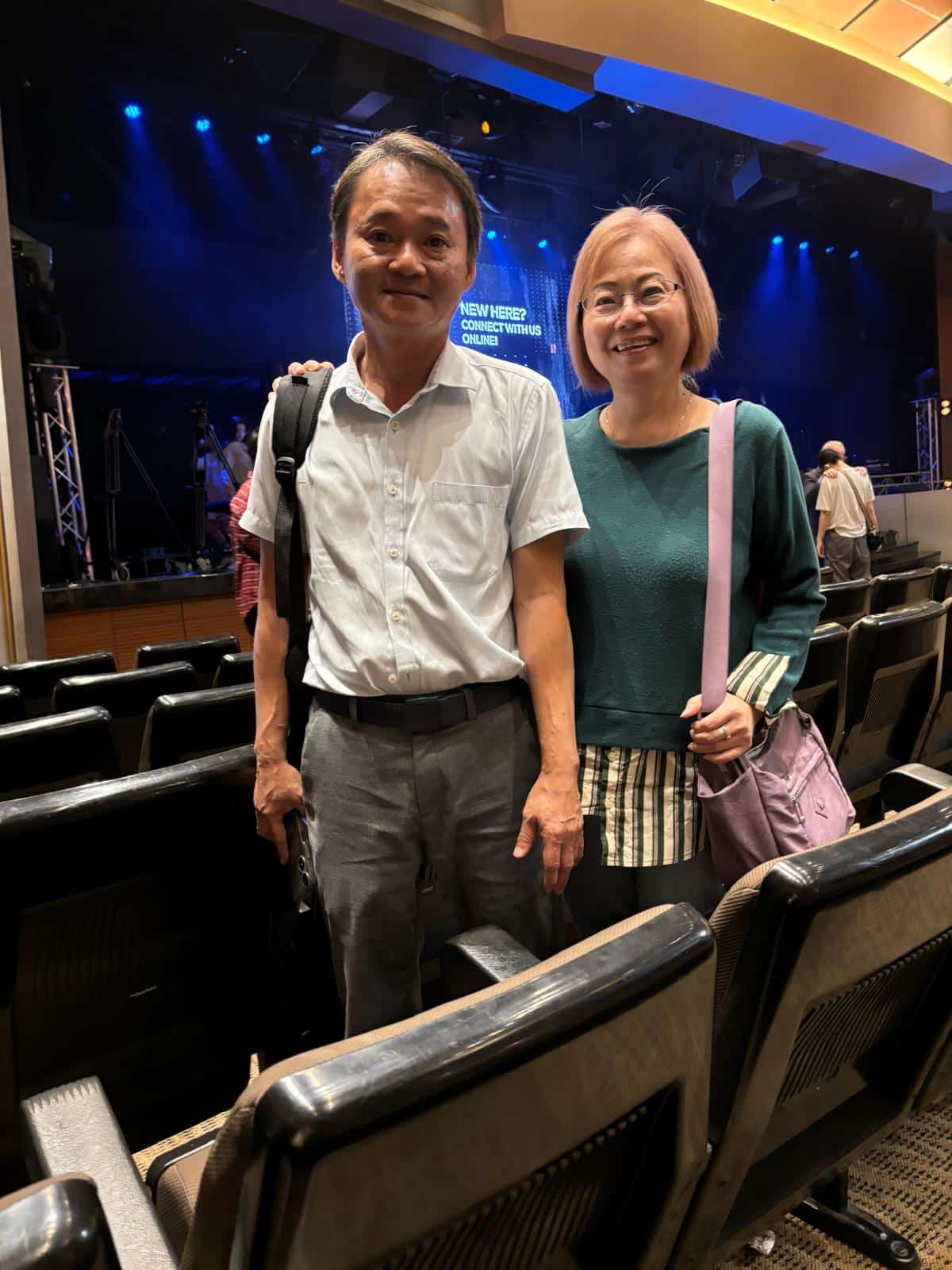
Alan with his sister Iris at Lighthouse Evangelism Church in Tampines, where he first cried out to God in 2006.
A desperate cry to God
This time, while everyone was seated, he stood up and had another outburst. However, it was directed at God this time.
“If You are real and so powerful, please help me. I have suffered for many years and have lost my way,” Alan cried out to God.
“I hand over the steering wheel of my life to You. If You say turn left, I will turn left. If You say turn right, I will follow,” he added, not caring who was listening to his loud prayer to God.
Alan accepted Jesus into his heart that day.
For the next two years, he attended church regularly. It was the rare event that he looked forward to every week – church, and then lunch.
Though Alan became a Christian, life did not immediately become better. Instead, his mental health condition deteriorated.
During his manic moments, he would plunge himself into work and busy himself with taking care of his fishes after work. Sleep could wait and insomnia was a familiar friend.
Of course, his body would crash after prolonged periods of insufficient rest. Work was unstable as he kept losing his jobs.
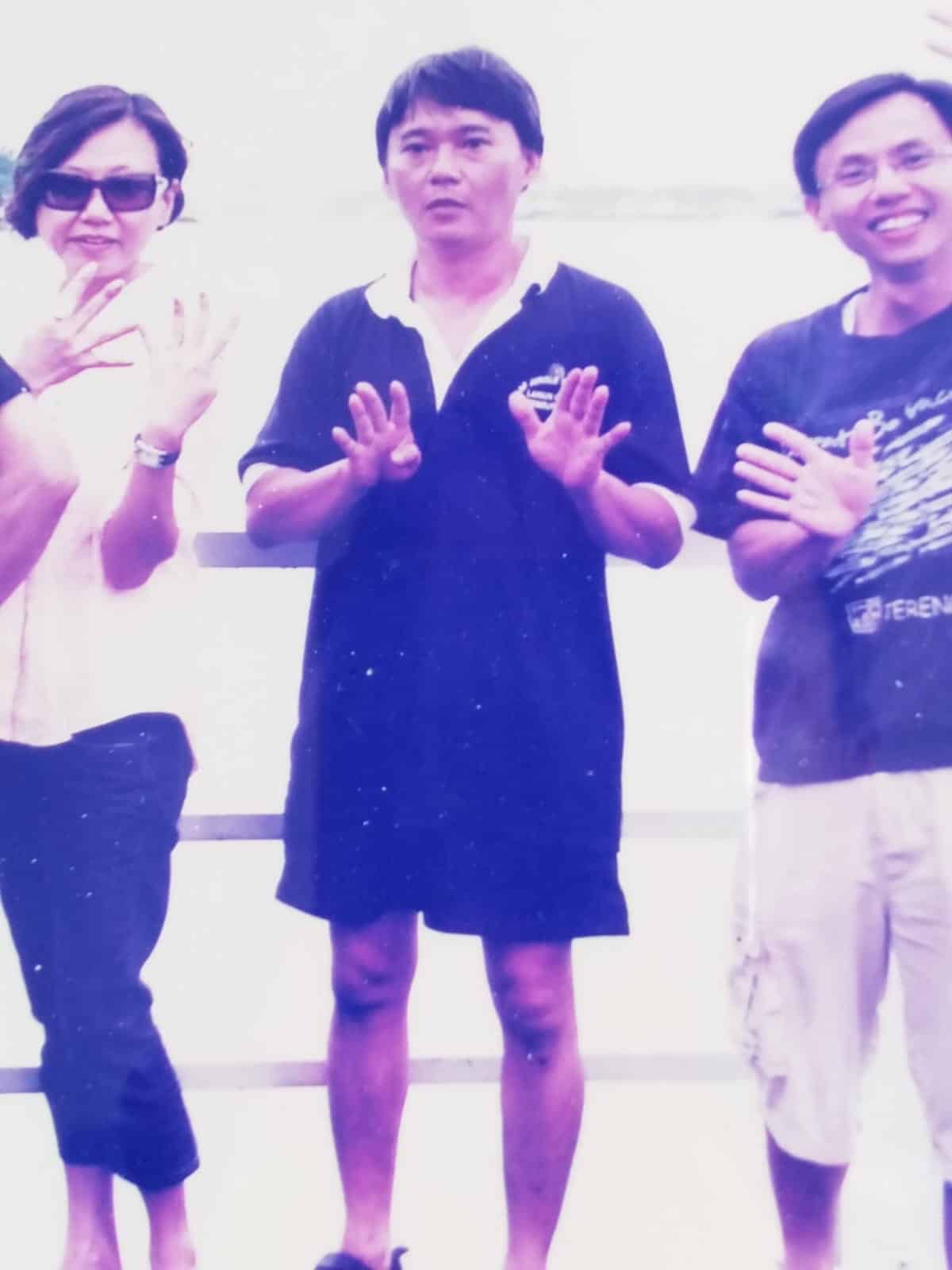
Alan with his family members. His sister Iris (in sunglasses) was the one who brought him to church.
In 2009, he had a major relapse. His body collapsed from exhaustion and he was admitted into Changi General Hospital’s (CGH) Intensive Care Unit.
“When I woke up, I saw a man smiling above me. Dr Peh was a psychiatrist there. After looking at my case notes, he advised me to stick to one doctor. I told him that was not possible as I was a Class C patient and I cannot choose which doctor I wanted to see,” said Alan.
Alan would later discover that Dr Peh took the trouble to mention Alan’s case to a fellow doctor at the Institute of Mental Health (IMH).
A divine appointment
One month after his discharge from CGH, Alan received a call from IMH’s Dr Joseph Leong.
“I would like to take over your case, Alan. I heard about you and I think I can help you,” Dr Leong told Alan.
Alan did not believe him one bit.
“Every doctor said the same thing to me but no one could help me,” he explained.
Nonetheless, Alan decided to go and see Dr Leong.
When he stepped into his clinic, he felt a difference immediately.
“Dr Leong stood up to welcome me and thanked me for coming to the appointment. Then he asked me if I was a Christian and if I knew where I would go when I died,” said Alan.
Alan decided to stick with Dr Leong as he felt his genuine concern, though he was still sceptical about his ability to help him.
Over the next few years, Dr Leong showed Alan that he indeed had a different care and treatment approach.
“Whenever I have a relapse or lose my job and I share it with any doctor, they would always either increase my medication dosage or admit me into hospital. Dr Leong did not do any of that,” said Alan.
Instead, Dr Leong encouraged him and prayed with him. He listened to Alan and worked with him to manage his condition.
“I felt safe sharing my problems with him. Instead of punishing me with hospital admission or more medication, he did the opposite and reduced my medication slowly,” Alan added.

Alan with Dr Leong in IMH.
“I reminded God that I am a child of His, just like His other children. I also want a wife, a house and a good job.”
Within five years under Dr Leong’s management, Alan was weaned off most of his medication. He found freedom from nightmares, insomnia, depression and suicidal thoughts and was discharged in 2015.
“God sent his angels like Dr Leong into my life at the lowest point in my life,” said Alan.
He also sent other healthcare angels such as Irene Sng, now the centre head of Community Rehabilitation and Support Services (Bukit Batok), who coaxed him to take up a healthcare course, following which she recommended him for the job of healthcare assistant at St Andrew’s Nursing Home (SANH) in Buangkok.

Irene (in green), Dr Leong (in batik shirt) and Iris (in red dress) attending Alan’s baptism ceremony.
On his 45th birthday, Alan began work at the 300-bed, long-term residential care facility for people with mental health issues and disabilities.
Another angel came in the form of counsellor Rebekah Chan who not only visited him and prayed for him after his discharge from IMH, she also urged him to learn how to talk to God for himself.
With childlike faith, Alan began coming before God and presenting his requests in prayer.
“I was already 45 years old at that time. So, I reminded God that I am a child of His, just like His other children. Like His other children, I also want a wife, a house and a good job, though I didn’t have any savings or much work experience then,” said Alan.
Two months after his prayer, his wife-to-be Dan Hua walked into ward 3B, the ward that Alan was attached to. He was responsible for helping to shower and feed the residents there. It turned out that Dan Hua had just been hired to be the staff nurse in charge of that ward.
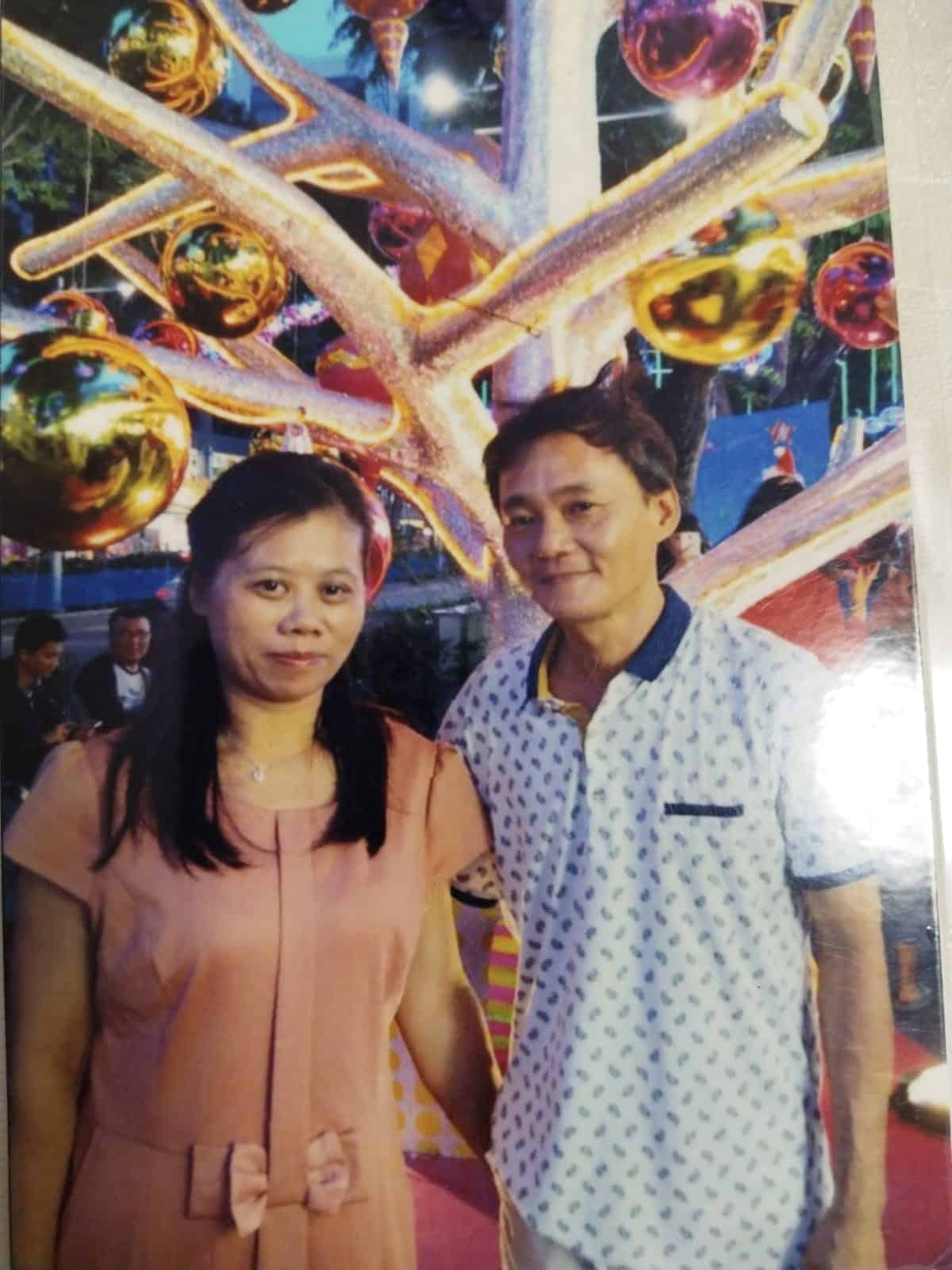
Alan and Dan Hua during their dating days.
Both of them fell in love and were married six months later in December of 2014.
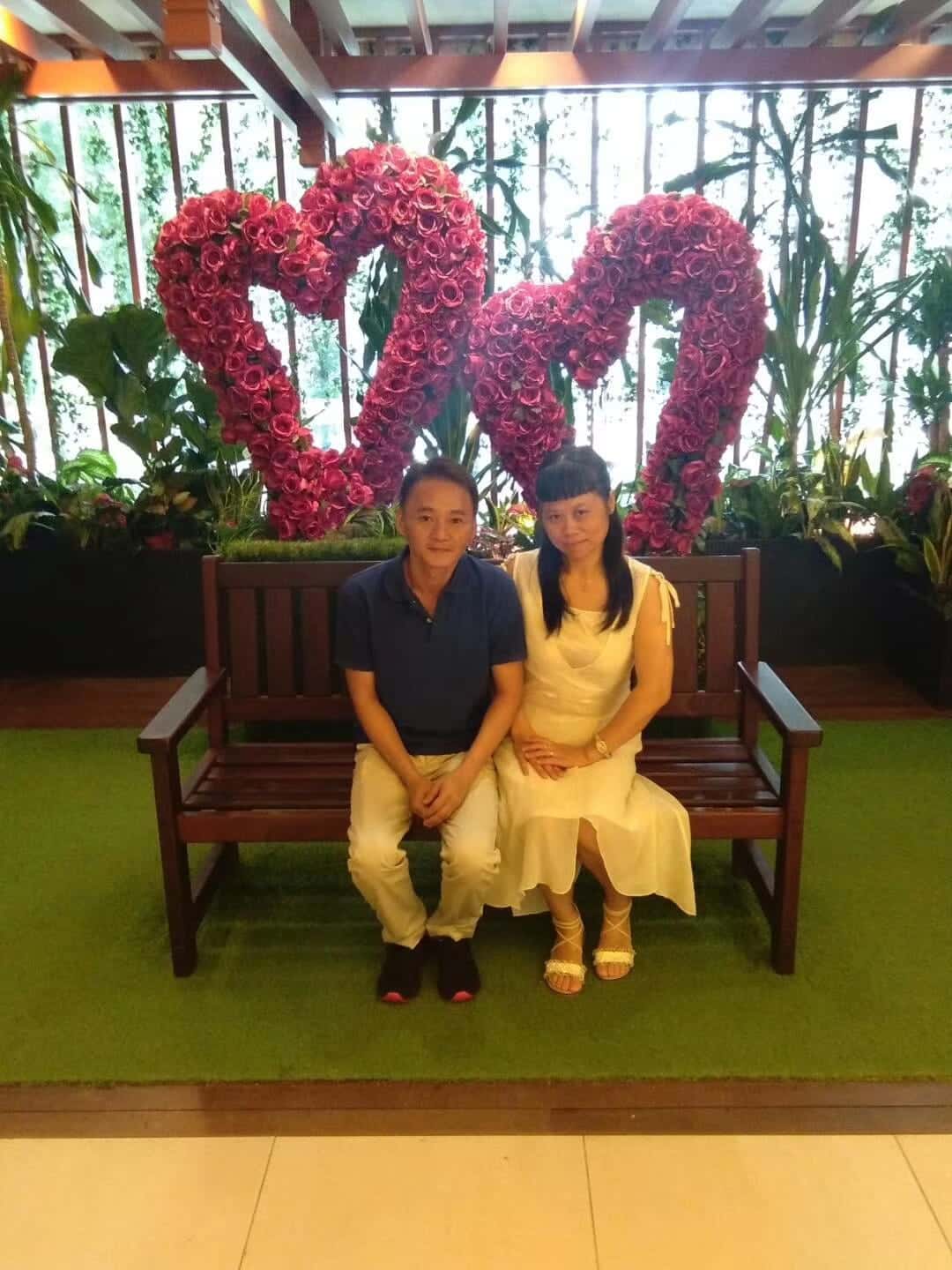
The couple registered their marriage in 2014, just months after Alan asked God for a wife.
Before they got married, Alan flew to China to meet her parents. While there, he assured them that he would soon have a house for the both of them.
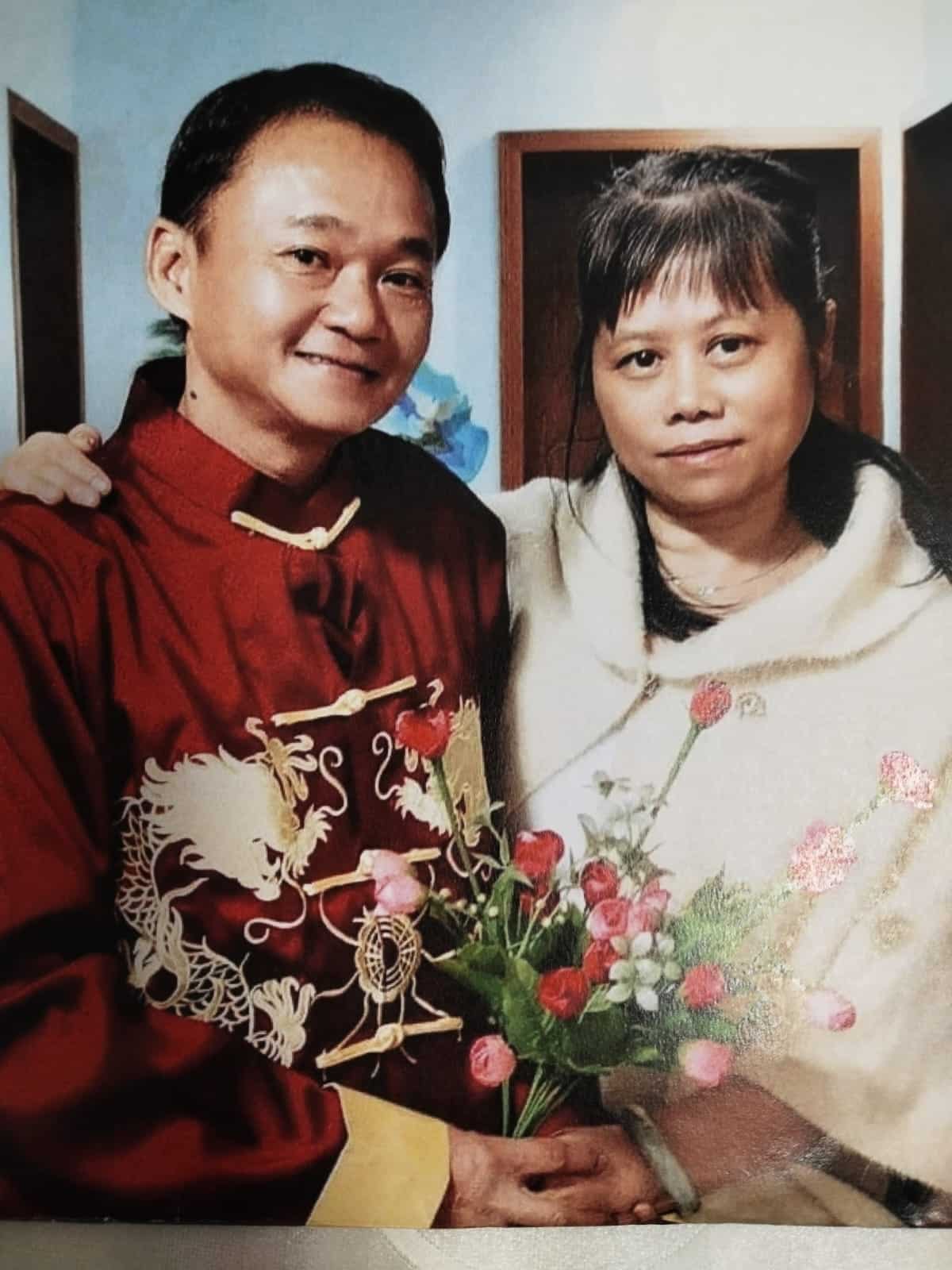
Their marriage ceremony in China.
At that time, there were only two HDB projects that he could ballot for – the Northshore project in Punggol or Woodlands. According to the available vacancies and demand, he stood a very slim chance of getting a unit at Northshore which was popular as the units were by the sea.
“When I was young, my father often brought me to the beach. I love the seaside. So by faith, I applied for Northshore,” said Alan.
In 2016, HDB informed him that he had successfully secured a unit at Northshore. The sea was just at his doorstep.
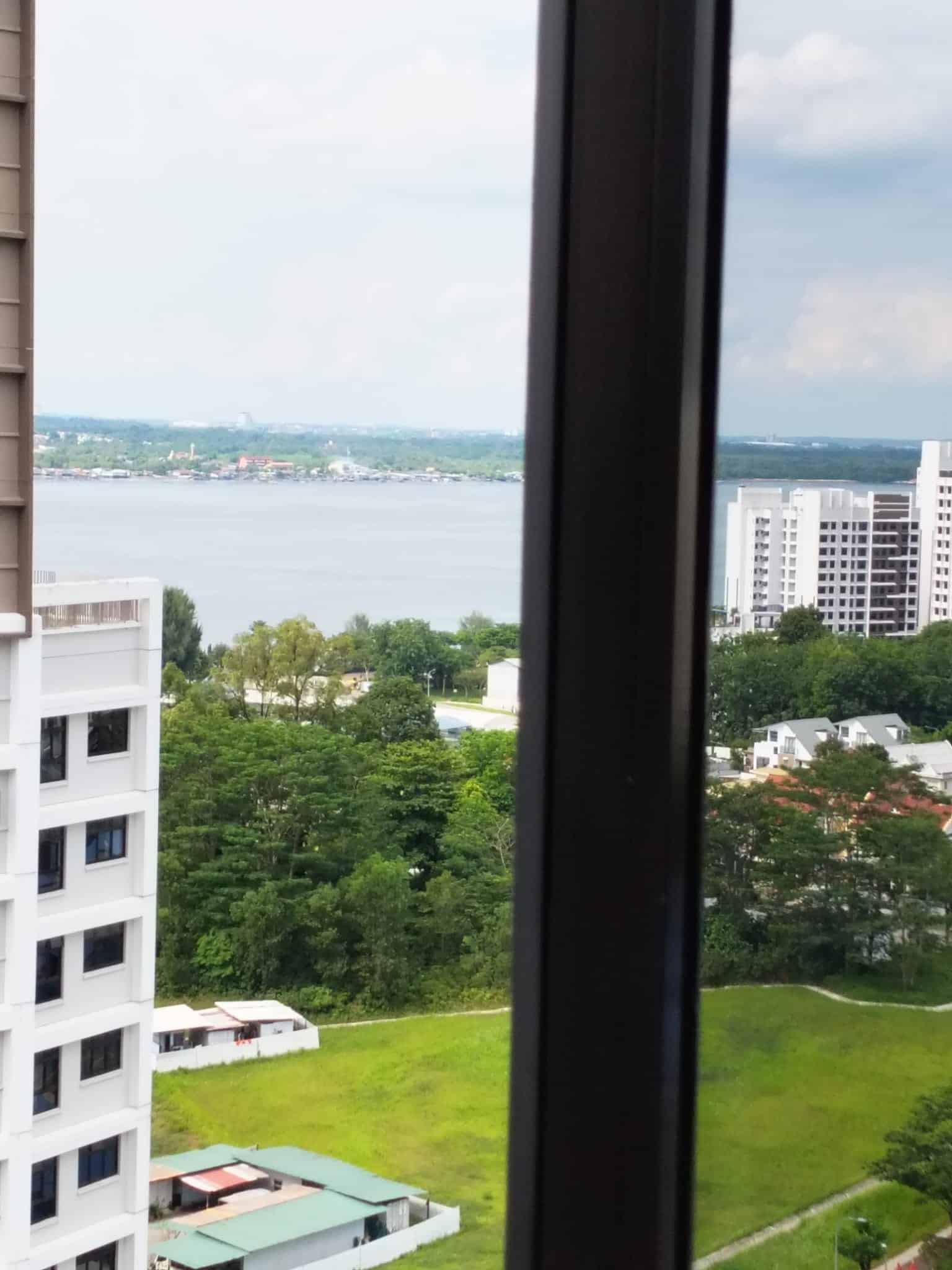
The sea view from Alan’s flat.

Alan with the fish that he caught from the sea next to his HDB block.
“God is so good. I didn’t ask for a nurse for a wife but He knew that I really admired nurses, after experiencing their care during my frequent hospitalisations. I didn’t ask for a home by the sea but He also knew that I would love that.
“He remembered and restored to me my youthful dreams of the past to marry and have a home,” said Alan.
His last request for a better job was also soon fulfilled.
Though he was grateful for a job that allowed him to serve the physical needs of residents in the nursing home, he yearned to do more.
Finding purpose from pain and suffering
That opportunity came when Dr Leong recommended him to become a peer support specialist. Those with previous mental health conditions are trained to leverage on their lived experience to support their peers individually or through group sessions.
Today, Alan is a peer support specialist at the nursing home and making a difference in the lives of the residents there.
“I listen to them and work with them to overcome challenges they face. We are not there to tell them what to do but to help them make decisions and take ownership of their lives,” he said.
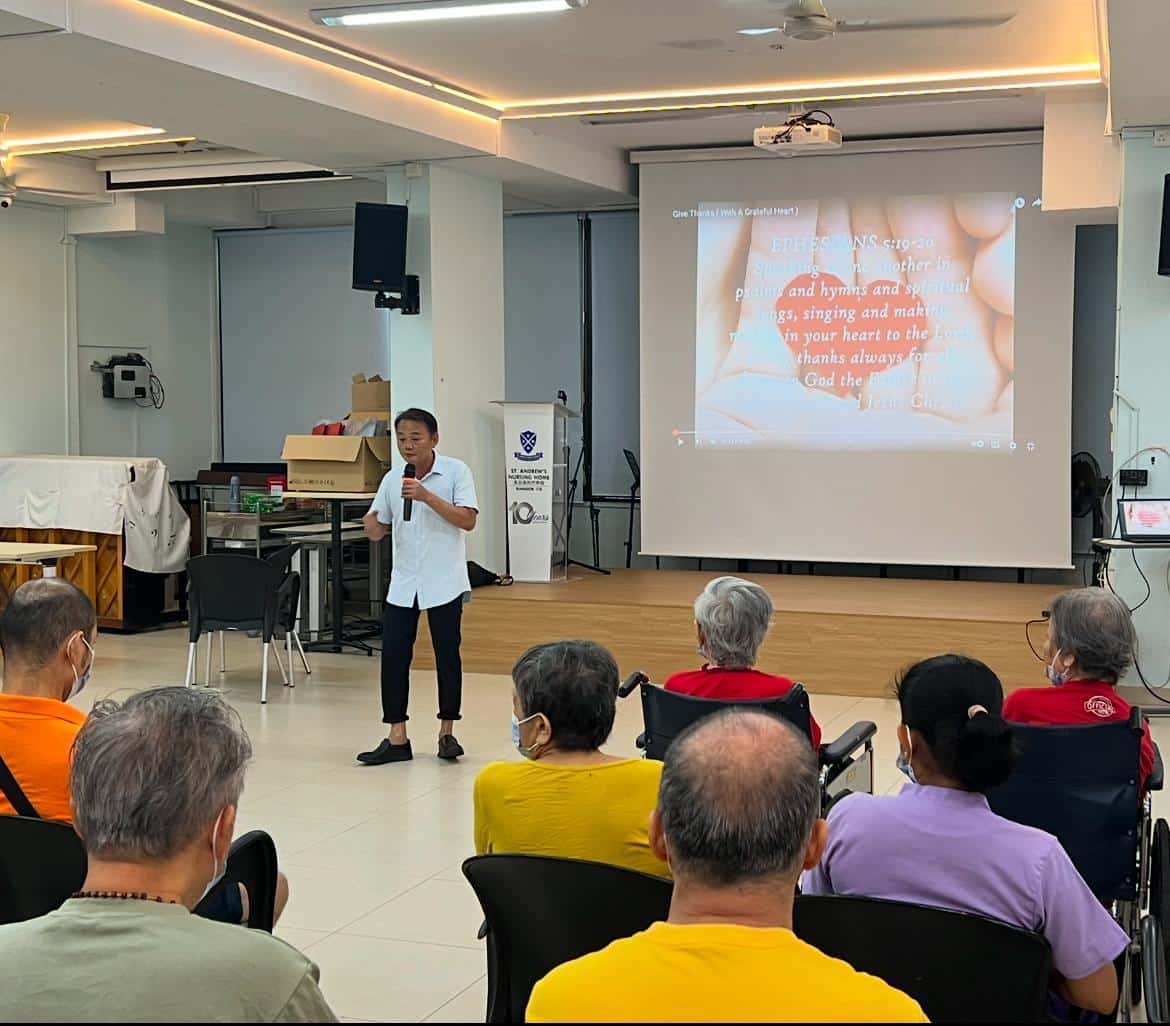
Peer support specialist Alan Ng conducting a group session for residents with mental illnesses at St Andrew’s Nursing Home.
For instance, he would not shout or command a resident who insists on sitting on the floor to get up. Instead, he lowers himself to sit with that resident on the floor and talk it through with him.
Whenever he plans activities or outings for the residents, he lets the residents decide what movie they wish to watch or what food they prefer to have in a bid to empower them.
Having gone through trauma himself, Alan is more sensitive and aware of how to help the residents there overcome certain psychological hurdles.
There is a blind resident who used to confine himself to a wheelchair. Alan realised that he dared not take a step to walk because he was traumatised by a previous fall. Alan patiently journeyed with him every day, slowly getting him to stand and then offering his shoulder for the blind resident to take those tentative few steps.
It took Alan a few months to succeed in that endeavour as the patient could not talk and kept beating him throughout the process. It was only when Alan had the idea of dabbing some perfume on himself to help the resident identify him as a familiar friend that he began making some progress.
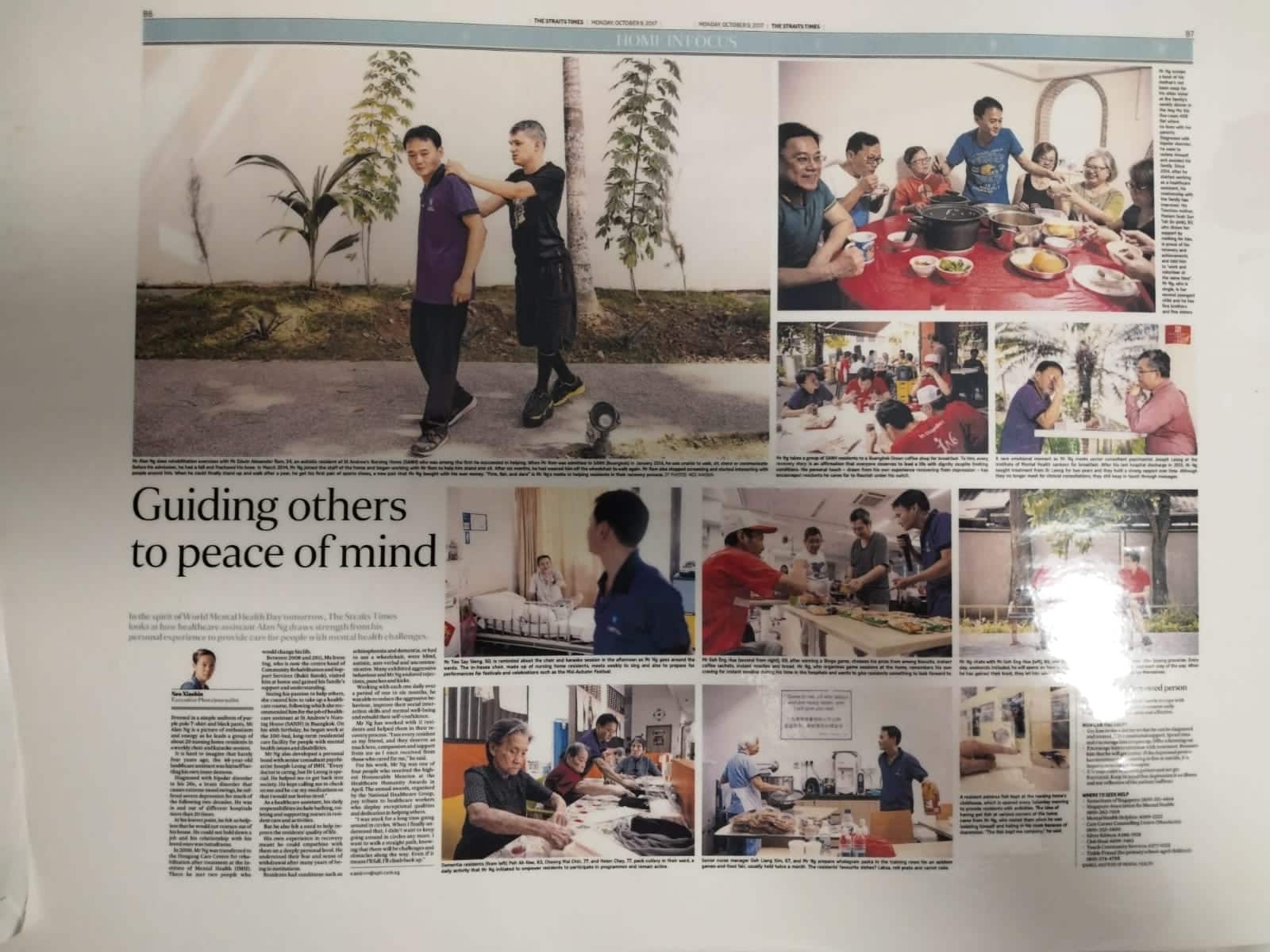
Alan’s efforts in serving his residents caught the attention of mainstream media.
For going beyond the call to serve the needs of his nursing home residents, Alan was awarded with two healthcare awards.
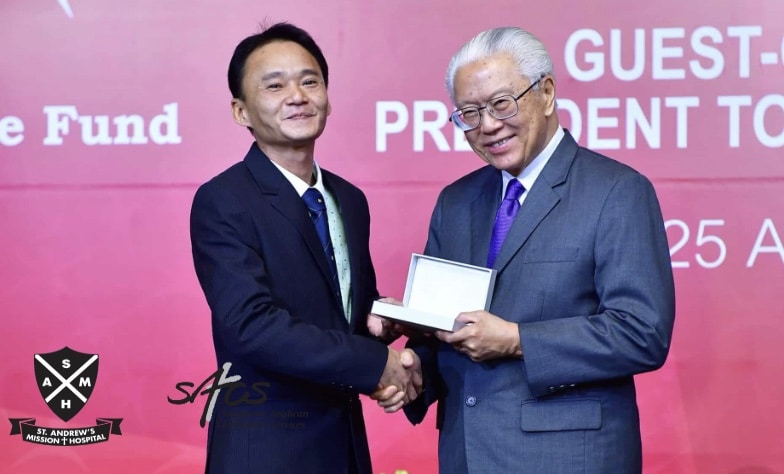
Alan received the Healthcare Humanity Award in 2017 from then President Tony Tan.

Alan volunteering with the elderly under the SG Cares initiative.
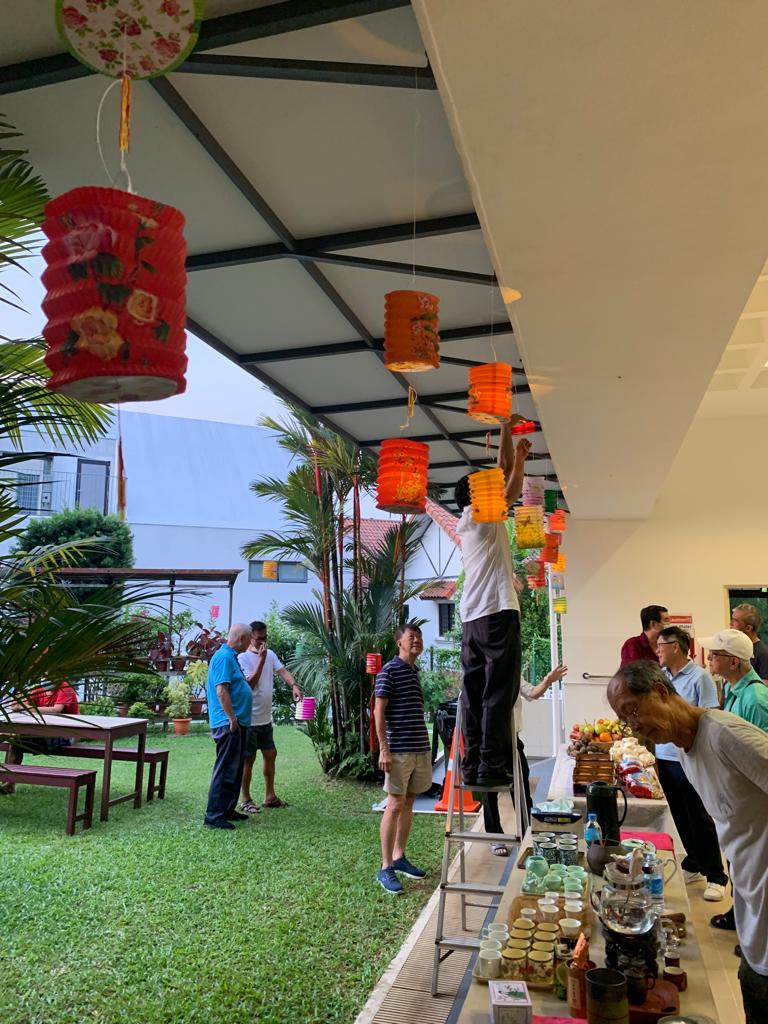
Alan decking out his church (Bethel Presbyterian) in mid-autumn decorations to celebrate with their homeless friends.
Looking back, Alan perceives that God is using his 15 years’ worth of pain and suffering with mental illnesses for good.
“I may not understand how or why, but I don’t need to. I know that He is with me. When I called out to Him, He answered me. It is all about His plan and His timing, and I am here to display His glory.”
RELATED STORIES:
“For every day the devil kept me in IMH, I vowed to bring one person to Christ.”
“Don’t let work define you”: Former COO of Sports Hub who battled insomnia and depression
“I was no longer alive although I was living”: How I went from depression to life
We are an independent, non-profit organisation that relies on the generosity of our readers, such as yourself, to continue serving the kingdom. Every dollar donated goes directly back into our editorial coverage.
Would you consider partnering with us in our kingdom work by supporting us financially, either as a one-off donation, or a recurring pledge?
Support Salt&Light


